27 Nov2017
By Conra D. Gist
AACTE’s Diversified Teaching Workforce (DTW) Topical Action Group invites you to register for a free institute and to nominate individuals – by December 15 – for the 2018 DTW Teacher Diversity Research Award.
The second annual Diversified Teaching Workforce Institute will convene February 28, 2018, at the AACTE 70th Annual Meeting in Baltimore, MD. The institute will unite a group of national leaders at colleges and universities across the United States to spotlight and explore innovative efforts for addressing racial/ethnic teacher diversity across five key areas: recruitment and retention, teacher preparation, mentorship, induction and professional development, and advocacy.
27 Nov2017
By Sharon Lovell, Shelley B. Wepner, Robin Anderson and William Henk
UPDATE: Please sign up for a focus group by December 21.
What factors contribute most to the longevity of education deans in their positions? Are there optimal lengths of time for education deans to stay in their roles, and if so, how long and why? What are the personal and professional benefits of remaining in the role as education dean for an extended period?
We invite currently serving education deans who have at least 7 years of experience in this role to participate in one of several focus groups. These focus group sessions, supported by AACTE, will last 45 to 60 minutes and will be conducted during the weeks of January 8 and January 15, 2018, using electronic conferencing technology.
13 Nov2017
By Benita Kluttz-Drye
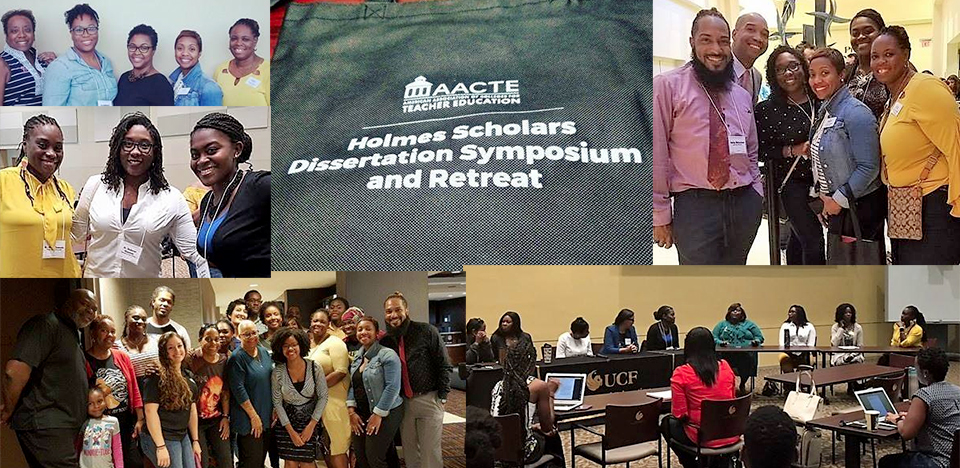
This year’s Holmes Dissertation Symposium and Retreat was sponsored by the University of Central Florida (UCF) and Florida A&M University (FAMU). It was held October 27-28 on the beautiful campus of UCF, providing attendees with a plethora of information to advance their scholarship and practical knowledge.
The conference began with a welcome by Dean Pamela Carroll of the University of Central Florida, Dean Monika Shealey of Rowan University, and Tim Finklea of AACTE. Shealey challenged us to use the support provided through the Holmes network, to glean from each other and all of the presenters at the symposium, and to take this as an opportunity to learn from others before us.
07 Nov2017
By Jerrica Thurman

To ensure that educators are prepared to meet the needs of all learners, the AACTE Clinical Practice Commission will release its findings on effective clinical educator preparation during a press briefing Wednesday, January 17, 2018. Panelists from the commission will present and discuss their culminating white paper at the event, to be held 9:00-11:00 a.m. EST at the National Press Club in Washington, DC.
Written by teacher educators representing expertise in theory, practice, and scholarship across the learning continuum, the report, A Pivot Toward Clinical Practice, Its Lexicon, and the Renewal of Educator Preparation, provides research- and practice-based recommendations, including a shared professional lexicon, for all educators to embrace as a foundation for effectively implementing clinical practice.
02 Nov2017
By John F. Snyder
AACTE is partnering with the American Association for Employment in Education (AAEE) to increase input from educator preparation providers in the organization’s annual teacher supply and demand survey. The views expressed in this article do not necessarily reflect the views of AACTE.
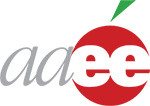
The current shortage of educators is no longer a myth. Data from several reports, including the American Association for Employment in Education (AAEE) Educator Supply and Demand Report 2016-17, show that in numerous certification areas in most areas of the country, there are not enough well-qualified candidates to fill educator vacancies. And even in states where the demand for full-time teachers is not as severe as in other states, there is a critical shortage of substitute teachers.
31 Oct2017
By Sarah Verneret
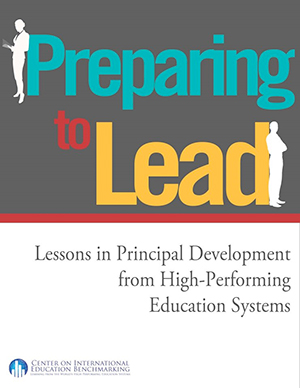
A new international-comparison study sheds light on important factors in the development of school leaders in selected "high-performing" systems around the world. The study, sponsored by the National Center on Education and the Economy’s Center on International Education Benchmarking, highlights commonalities in principal preparation among the systems whose students scored highest on the Programme for International Student Assessment (PISA) survey: Hong Kong, Ontario, Shanghai, and Singapore.
Australian researcher Ben Jensen authored the report, Preparing to Lead: Lessons in Principal Development From High-Performing Education Systems. Its overarching message is that successful education systems provide current and future school leaders with preparation that is specifically tailored to the real-world problems and contexts they will face in their work environments.
“The best programs combine a detailed understanding of principals’ roles and responsibilities with a deep grounding in the system’s particular philosophy and objectives for how schools get better,” Jensen said.
26 Oct2017
By JTE Insider

Have you seen the JTE Insider blog managed by the Journal of Teacher Education (JTE) editorial team? Check out the following interview with the author of a recent article. This blog is available to the public, and AACTE members have free access to the articles themselves in the full JTE archives online—just log in with your AACTE profile here.
This interview features insights from the article "Predictive Validity and Impact of CAEP Standard 3.2: Results From One Master’s-Level Teacher Preparation Program," written by Carla Evans of the University of New Hampshire. The article, which appears in the September/October issue of JTE, is summarized in the following abstract:
13 Oct2017
By Ron Avi Astor

Did you know that October is National Bullying Prevention Month? AACTE member professor Ron Avi Astor, who holds joint appointments in the schools of social work and education at the University of Southern California, has two new books out this fall addressing bullying prevention and creating welcoming schools for vulnerable groups, and he prepared the following article to share some of his research and resources with Ed Prep Matters readers. The views expressed in this post do not necessarily reflect the views of AACTE.
Preparing our nation’s teachers, principals, superintendents, and pupil personnel to create safe, welcoming, and supportive schools has become a high priority for colleges and universities. PK-12 schools have the power to prevent students from becoming bullies and to prevent victims from becoming bullies or being further victimized. Organizations such as the American Educational Research Association and the National Academy of Sciences have put forth research summaries and materials for universities to use with this aim in mind. In addition, many states are now actively working with organizations such as the Collaborative for Academic, Social, and Emotional Learning to better implement social and emotional learning (SEL), positive school climate, and bullying prevention into schools and to consider ways to measure these areas as part of their state student surveys and accountability systems. (See list below for useful resource links.)
05 Oct2017
By Jane E. West

The Learning Policy Institute (LPI) is out with a new analysis of teacher turnover and its impact on teacher shortages, showing that the nationwide shortfall of 100,000 teachers predicted in last year’s study A Coming Crisis in Teaching? has largely been realized and issuing recommendations to stem the problem before it grows worse.
In the updated report – Teacher Turnover: Why It Matters and What We Can Do About It – Desiree Carver-Thomas and Linda Darling-Hammond share recent data revealing that in just 31 states, 82,000 positions are filled by underqualified teachers and at least 5,000 are unfilled altogether; extrapolated to all states, the total number is likely around 110,000. If current trends persist, they say, we could face an even higher shortfall next year. The shortages are most acute in the fields of special education and science, technology, engineering, and math (STEM) and are disproportionately present in high-poverty and high-minority schools.
29 Sep2017
By Kristin McCabe

What does strong preservice preparation look like for teaching the Next Generation Science Standards (NGSS)? This question is explored in an article published in the May/June 2017 issue of the Journal of Teacher Education, an issue that also includes several other articles on the topic of the implications for teacher preparation of the Common Core and other new PK-12 learning standards.
A recent podcast interview for the JTE Insider blog provides insights from Mark Windschitl of the University of Washington and David Stroupe of Michigan State University, authors of the article “The Three-Story Challenge: Implications of the Next Generation Science Standards for Teacher Preparation.” JTE Graduate Assistant Bernadette Castillo conducted the interview.
29 Sep2017
By Aaron Goldstein
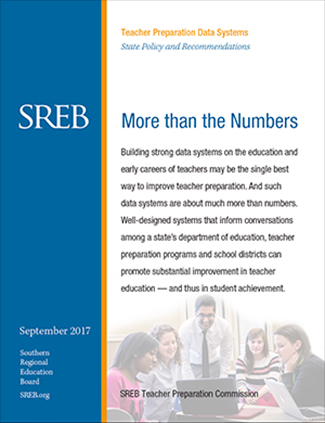
A commission made up of college of education deans, state legislators, university presidents, heads of postsecondary systems, state and district superintendents, and leaders of nationwide organizations has released a report presenting recommendations for state policy related to teacher preparation data systems. This Teacher Preparation Commission of the Southern Regional Education Board, a nonprofit organization that works with states to improve public education and support state policy makers, is charged with developing and identifying state recommendations to improve teacher preparation programs.
More Than the Numbers – Teacher Preparation Data Systems: State Policy and Recommendations, the Commission’s first report, focuses on how to build strong statewide data systems for teacher preparation drawing on policy models in three states – Louisiana, North Carolina, and Tennessee. In Louisiana, the report acknowledges the work of the Board of Regents and the Louisiana Teacher Preparation Program Dashboard for promoting data in a more accessible and transparent way. In North Carolina, the report praises the University of North Carolina Educator Quality Dashboard. In Tennessee, the State Board of Education, Tennessee Department of Education, and Tennessee Higher Education Commission redesigned the state’s Teacher Preparation Report Card to provide an interactive tool for aspiring teachers. Other practices that the report praises are data systems’ ability to follow teachers through their careers, focus on outcome measures, break down data “silos,” and make data more accessible.
26 Sep2017
By Lynn M. Gangone
The greatest benefit of an association is the collective effort of its members to identify and then advance shared values. In the 2016 Harvard Business Review article “The Ecosystem of Shared Value,” the authors describe collective impact as a movement that successfully brings together various actors in their ecosystems to catalyze change. In the ecosystem of educator preparation, every individual AACTE member plays a critical role in creating a collective voice that impacts American education today and beyond. Through members’ active engagement, AACTE is empowered to achieve successes beneficial to our entire professional community and the students we serve.
Leading into this academic year, I have been highlighting AACTE’s core principles as they reflect members’ shared values and the driving force of our work. This month, I celebrate AACTE’s core values around scholarship and knowledge production, which represent your commitment to high research standards and to producing scholarship that contributes to educational practice. AACTE, its members, and its collaborative partners stand ready as a collective voice to effect educational and social change.
19 Sep2017
By Aaron Goldstein
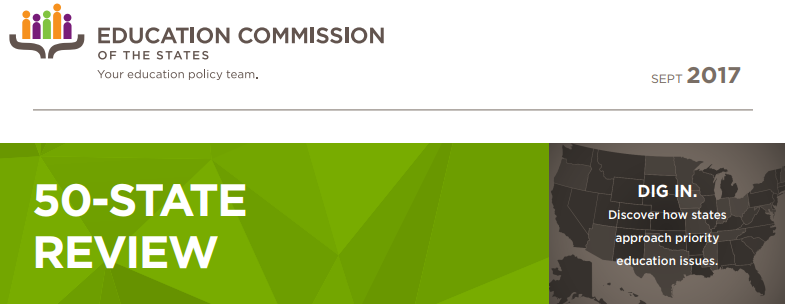
Today, the Education Commission of the States (ECS), a national organization of state education policy leaders, released a report that reviews state policies related to teacher license reciprocity. While states are facing educator pipeline challenges, the report finds that teacher licensure systems are intended to ensure educator quality, but have the potential of limiting cross-state mobility that could cause harm teacher attrition and retention.
The report explores teacher license reciprocity – in which a candidate who possesses an out-of-state license can earn a license in a new state based on state requirements. At the national level, the report references the National Association of State Directors of Teacher Education and Certification (NASDTEC) Interstate Agreement, which collects agreements between NASDTEC member states to understand which licenses are transferable and what additional requirements might be needed. At the state level, the report finds that since last year, 11 states have enacted new laws or regulations that facilitate teacher license reciprocity. Two states – Arizona and Nevada – became full reciprocity states by enacting new laws that remove barriers for licensure. Two additional states – Oklahoma and Delaware – passed new laws that waive certain assessment requirements for out-of-state candidates.
18 Sep2017
By JTE Insider

Have you seen the JTE Insider blog managed by the Journal of Teacher Education (JTE) editorial team? Check out the following interview with the authors of a recent article. This blog is available to the public, and AACTE members have free access to the articles themselves in the full JTE archives online – just log in with your AACTE profile here.
This interview features insights from the article “New Standards Require Teaching More Statistics: Are Preservice Secondary Mathematics Teachers Ready?” written by Jennifer N. Lovett of Middle Tennessee State University and Hollylynne S. Lee of North Carolina State University. The article, which appears in the May/June issue of JTE, is summarized in the following abstract:
15 Sep2017
By Zachary VanHouten
By October 2, the Institute for Education Sciences (IES) is seeking input from the field on its requirements related to efficacy, replication, and effectiveness studies.
The impetus of the feedback request follows recommendations provided from a technical working group that was assembled in October 2016. IES seeks to understand whether the current Goals 3 and 4 (out of its full list of five) are meeting the needs of the field or whether modifications would be beneficial to replication and effectiveness studies. Goal 3 addresses efficacy and replication studies, and Goal 4 supports independent evaluation of prior efficacy studies.















